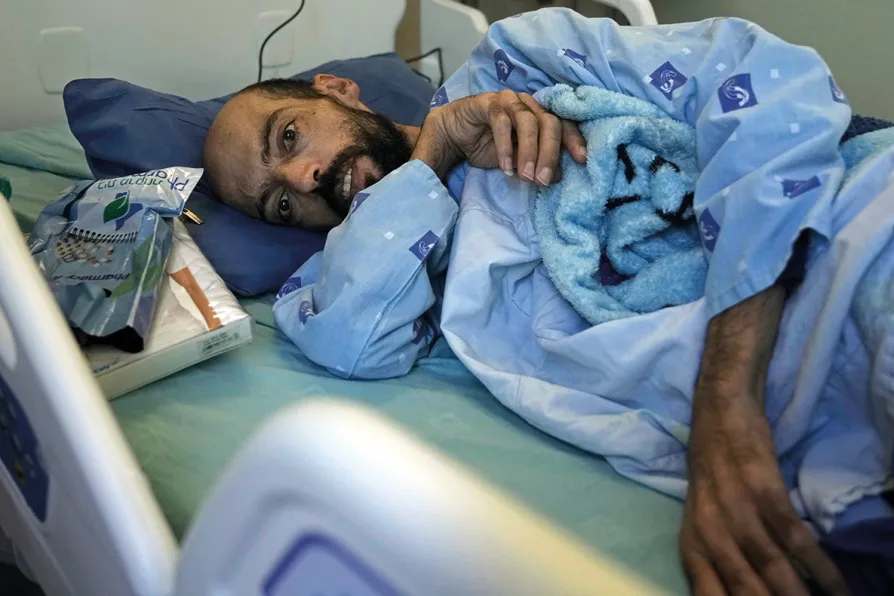As tens of thousands return to the streets for the first national Palestine march of 2026, this movement refuses to be sidelined or silenced, says PETER LEARY

 UNBOWED: Imprisoned Palestinian hunger striker Khalil Awawdeh lies in bed at Asaf Harofeh Hospital in Be’er Ya’akov, Israel, August 2022
UNBOWED: Imprisoned Palestinian hunger striker Khalil Awawdeh lies in bed at Asaf Harofeh Hospital in Be’er Ya’akov, Israel, August 2022
“AS soon as I left prison, I went to Nael’s grave. It is adorned with the colours of the Palestinian flag and verses from the Holy Quran. I told my little brother how much I loved and appreciated him, and that, one day, we would meet again in paradise.”
The above is part of a testimony given to me by a former Palestinian prisoner, Jalal Lutfi Saqr. It was published two years ago in the volume These Chains Will Be Broken.
As a Palestinian, born and raised in a refugee camp in Gaza, I was always familiar with the political discourse of, and concerning, political prisoners. My neighbourhood, like every neighbourhood in Gaza, is populated with a large number of former prisoners, or families whose members have experienced imprisonment in the past or present.
However, starting in 2016, my relationship with the subject took on, for the lack of a better term, a more “academic” approach. Since then, and up to now, I have interviewed scores of former prisoners and members of their families.
Some were imprisoned by Israel, others by the Palestinian Authority. I even spoke to prisoners who experienced the brutality of Middle Eastern prisons, from Iraq, to Syria, to Egypt and Lebanon.
A few particularly unlucky ones have endured multiple prison experiences and were tortured by men speaking different languages.

RAMZY BAROUD looks at how entire West Bank communities have been shattered, their social and physical fabric deliberately dismantled by Israel to enable its formal annexation

Israel and the US talk as if they’ve won a victory, but the reality is that world opinion has turned decisively against the Israeli regime, says RAMZY BAROUD

Israel’s genocide in Palestine and wars against its neighbours would be impossible without constant Western support — so we must amplify the brave voices demanding a halt, argues DR RAMZY BAROUD











